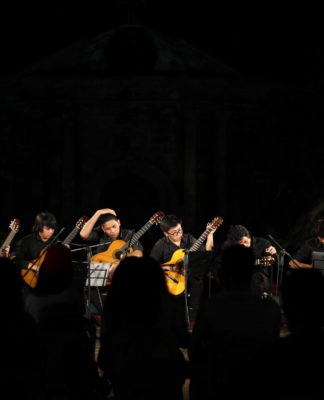CHAIRMAN Benjamin Abalos of the Commission on Elections (Comelec) said the Comelec will deputize the UST’s Reserved Officers Training Corps (ROTC) cadets in May to keep the elections safe and clean.
Abalos said that the Comelec had signed an agreement with the military to check military intervention in the elections.
“Since a memorandum of agreement was signed between the Armed Forces of the Philippines and the Comelec which prevents the participation of military during the election, we thought of using the ROTC cadets to man the precincts,” Abalos said during the forum, “2007 Election: A Litmus Test for Philippine Democracy,” last Feb. 7 at the Thomas Aquinas Research Complex Auditorium.
The Comelec will enlist 500,000 ROTC cadets across the country to meet the 900,000 election inspectors needed in May polls, Abalos said.
“The ROTC cadets will be a big help in securing precincts that are in need of more election inspectors,” he said.
However, Abalos told the Varsitarian that the role of the cadets in the elections would only be limited to peace-keeping.
“The Comelec would ask the help of the cadets only when the need arises,” Abalos said. “They would be trained on how to poll-watch or how to answer calls during elections.”
Faculty of Civil Law Dean Alfredo Benipayo, a former Comelec chairman, said the Comelec has the power to deputize the ROTC.
“Under the law, the Comelec can deputize the military, the police and the reserves,” Benipayo told the Varsitarian.
Meanwhile, Abalos appealed to Thomasians to help the Comelec in guarding the elections.
”You can only have a government you deserve if you value your vote,” Abalos said.
Abalos also explained that the recently enacted Automated Election System Law (RA 9369) may be fully implemented during the elections.
“It would have been my crowning glory as the first chairman to use an automated machine, but I cannot implement this law right away for the coming elections,” Abalos said, explaining that the law creates an advisory council that will discuss the implementation of the automated system.
Meanwhile, Abalos criticized senators and congressmen who did not comply with the law requiring political candidates to undergo a drug test.
“We cannot punish these politicians because the law itself has no penalties for violators,” Abalos said. “Until now, the case is still pending in the SC.”
The forum was organized by the Faculty of Arts and Letters and the Social Research Center. Marie Jeanette Cordero, Kristine Jane Liu, and Leonard James D. Postrado















